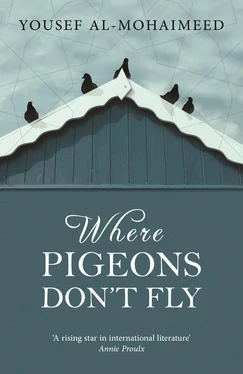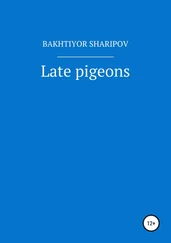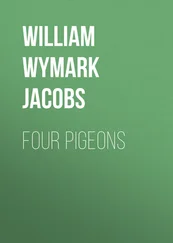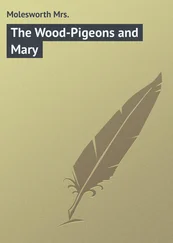When his grandfather had been sent the news of a baby boy he didn’t go straight home to his wife’s family after evening prayers. Instead, he stayed in the mud-brick mosque with the congregation, praying through a watch of the night until his misgivings had abated and the moon had reappeared, for that night, fifteenth of Shaaban, 1379 AH, there had been an eclipse.
Ali was miserable, distraught and full of foreboding. An eclipse of the moon as a child entered the world! For a newborn to arrive accompanied by the wrath of God was terrifying; the baby’s whole life and future was in doubt.
‘I said he was defective from the day he was born.’
Words he repeated throughout his son Suleiman’s life, until the boy’s childhood became filled with injustice and misfortune and he lived all his days with a sense of guilt for what had befallen his family.
At first Suleiman’s mother, Noura, told her husband, ‘Seek protection from the Devil and stop prophesying like a pagan!’ But just a week later she herself was shouting in fear and every member of the household wailing when they were told that her younger brother, Ibrahim, and his school friends had been seized by the police outside Muhanna Palace and taken to Riyadh, where he remained for two whole months before returning to Buraida to be flogged before the crowds with his companions. Only then was Noura persuaded that her son Suleiman truly was a curse on her family.
Noura’s family in Buraida maintained a somewhat open-minded household, unlike that of her husband’s family in Muraidasiya, who were said to be so excessively credulous and superstitious that they gave their cockerel a ritual washing to cleanse him of impurity before he mated with the hens. Her father was one of the great itinerant merchants of the Nejd, who had spread out to Egypt, Iraq and Palestine in the early twentieth century, while in the early 1920s her brother Ibrahim and his friends had despaired of the extremism of the parliamentary deputies who walked the streets carrying long staffs made from the branches of the shauhat tree, white turbans on their heads. The deputies exhorted people to pray, warned against gatherings of young people, denounced the wearing of the white ghatra and aqqal and decried the spread of cafés serving tea and shisha . They banned the motorbike, which they referred to as ‘Satan’s steed’, and whenever they found a young man in possession of one, they would confiscate it.
At this, Fahd’s Uncle Ibrahim and his friends, nineteen young men all told, decided to march in a demonstration to Muhanna Palace, the residence of the city’s governor, Ibn Battal, carrying on their shoulders a young man acting the clown and dubbed the akia . They came to a halt outside the palace shouting fearlessly and wildly, ‘Down with Ibn Battal! Long live the youth! Down with the deputies! Long live the akia !’
Seven years passed, during which the heart of Ali and Noura’s youngest child, Mohammed, was weakened by measles and he passed away aged four. ‘If death let me choose between them, I would ask he take the bird of ill omen,’ Ali muttered bluntly, pointing to his middle son, Suleiman.
Ali’s face never brightened again. As everyone in Muraidasiya knew, Mohammed was the apple of his father’s eye, while his eldest, Saleh, was his right hand, his tongue and his support.
Fahd had been told so many stories about his grandfather. Who could forget Ali’s opposition to the village muezzin? Ibn Dakheel had mounted the first-ever loudspeaker on the village mosque, his voice ringing like thunder when he cleared his throat at dawn. Ali tried urging the congregation to reject this heretical innovation on the grounds that all innovation is deviance and all deviance leads to hellfire. He went further: ‘To remain silent over the truth is to be a devil without a tongue.’
The loudspeaker was affixed to the roof of the mud-brick mosque, facing out over the houses and farms of the village. After dawn prayers the men parted ways, shuffling homewards with drowsiness hovering over their heads, Ali amongst them, leading his sons, Saleh and Suleiman, like two befuddled puppies. No sooner had he stretched out his legs in the breakfast room, sipping at his morning coffee, than Suleiman fell asleep in a warm corner, while Saleh slipped outside carrying the hunting rifle, the.25 calibre pellet gun.
It was his habit to surprise birds in their nests at first light, but now he passed Abu Rashed’s fields, ignoring the calls of the songbirds in the massive thorn trees. He broke the gun’s barrel and taking a small wetted pellet from beneath his tongue, blew hard to remove the last vestiges of his spit and thumbed it into the breech. He clicked the barrel straight as he approached the mosque, took aim at the loudspeaker for a few seconds, then, whispering ‘God is great’ over and over, he pressed the trigger and struck it dead centre. He repeated the dose three times.
The afternoon prayers came and went with no terrifying thunder and no heretical innovation that leads to hellfire. From that day forward, Saleh became a family hero and champion of the Faith, acquiring both social standing and an enormous confidence in himself and his actions, no matter how wrong or reckless.
Suleiman, meanwhile, was little more than a heap of tattered summer clothes bundled up by his mother’s side, confused and uncertain and beset by a sense of injury, injustice and ill-treatment. No sooner had he finished his basic education than he decamped to Riyadh to complete his studies. He did not go to Buraida where his brother had been for years, living with his uncles and studying at the National School—‘the Brothers school’ as it was known — until his father finally moved with his wife and three daughters to Quwai in West Buraida, escaping before God could wipe the village of Muraidasiya from the map. After the business with the loudspeaker, there could be no remaining amongst a people who, as the Book said, ‘have changed what is in their own souls’, for now God would surely change the grace he had bestowed on them with a mighty flood to drown the village, with an earthquake to shake it and turn it on its head, or something similar.
The well dried up and the date palm in Ali’s wall died. Then, a few years later, Ali died as well, proud that no man could accuse him of neglecting the good cause, and proud of the stand he and three other men from Quwai had taken against moral corruption in the winter of 1966, travelling together to Riyadh with a great crowd of citizens from Buraida to stand outside King Faisal’s palace and denounce the opening of a girls’ school, setting up a tent by the main gate until they were chased away.
How proud Saleh was of fighting heresy in Muraidasiya in the 1960s! How proud, too, to breathe into his father’s ear the damaging allegation that his maternal grandfather hid a transistor in his bedroom in Buraida on which he listened to the Voice of the Arabs radio broadcasts. Ali al-Safeelawi, however, held his father-in-law in great esteem, so despite his burning desire to denounce his use of the radio and decry it as a heresy and a deviancy and a blasphemy on a par with harbouring a prostitute, he held the knowledge close and condemned it in his heart.
How Fahd longed for the bravery of his Uncle Ibrahim and his friend the akia , to be able to scream at the Committee man and the thin policeman with his belt and revolver dangling like the head of drowned child, to snatch back the bag of his possessions and demand: ‘When did you presume to own people who were born free?’
What freedom? he asked himself. When his own father tasted the bitterness of long years in jail just for being careless enough to pass out pamphlets to worshippers in the Grand Mosque? Was he dreaming of being a leader in the fight against corruption and the collapse of our values and moral code? Did he dream of silencing song and stilling the instruments, of preventing women and female singers from appearing on television? Were he and his comrades going to fill the earth with justice after it had brimmed with injustice and tyranny? Or did he just want to say to Ali, his father: Here I am! Here I am. The one you mocked and whose fate you saw in the moon! I came to show you that this is more than a childish game, more than a paltry rifle that young boys use to hunt sparrows or, like my older brother, destroy with its puny pellets a loudspeaker in some remote village west of Buraida.
Читать дальше












